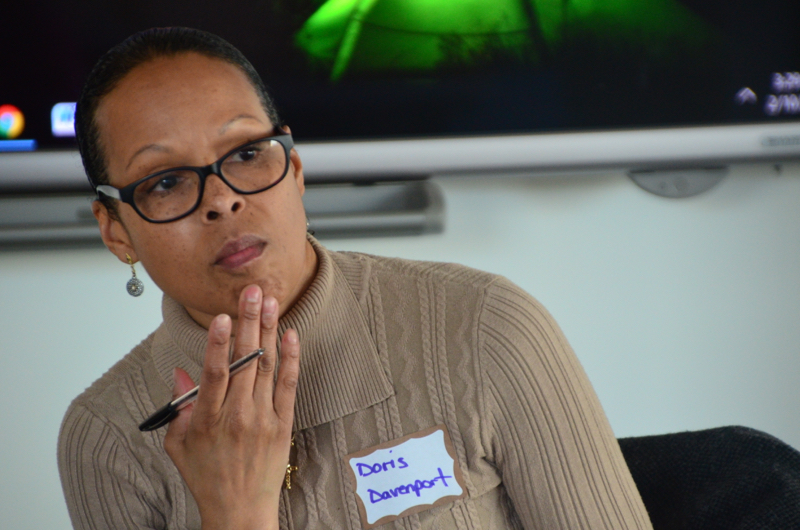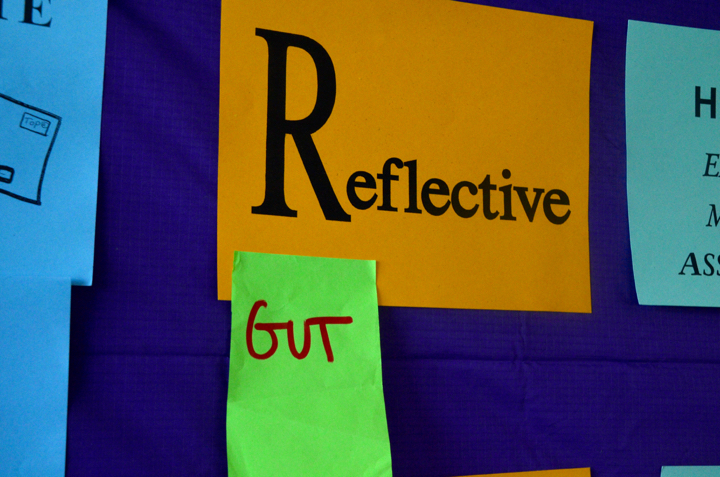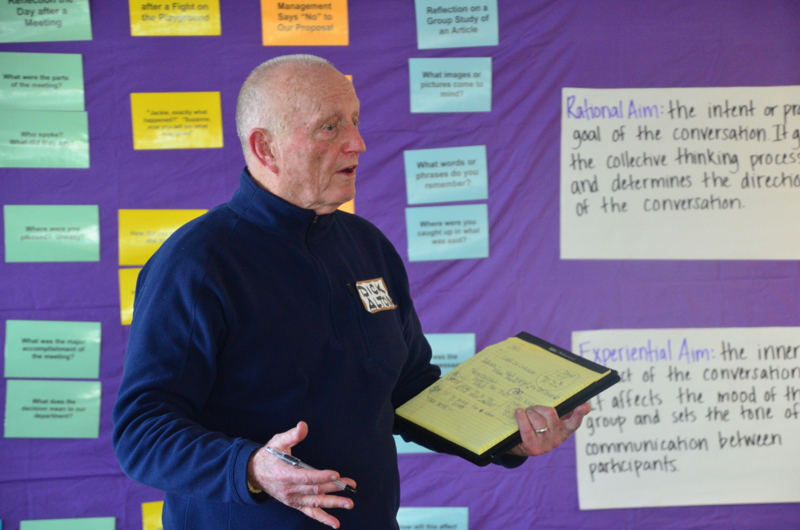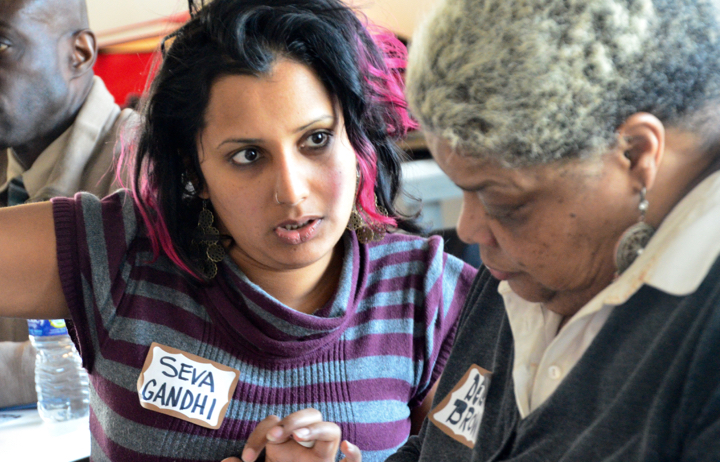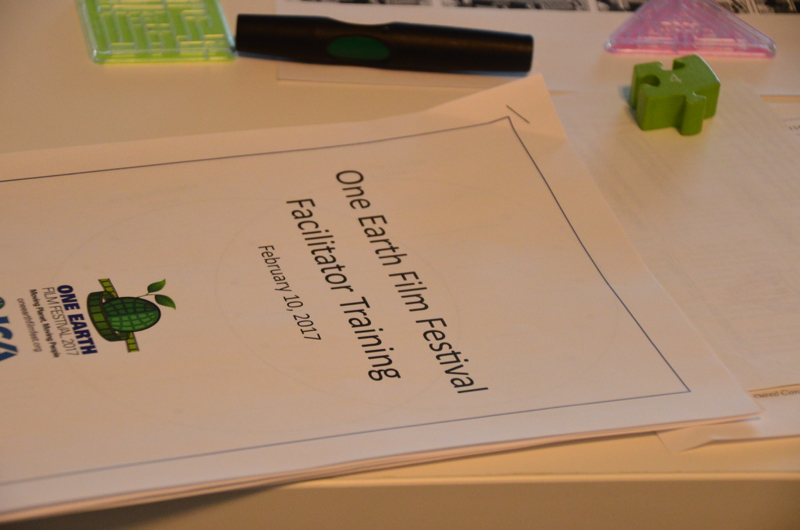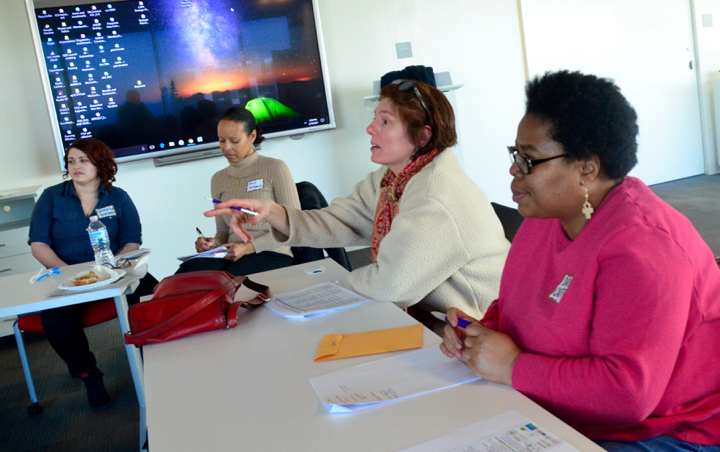Seva Gandhi and Dick Alton lead a workshop exercise.
One Earth Film Festival is about more than coming out to watch a film. But you know that. Right? (At least we hope you do).
What truly makes the festival stand out from the crowded field of film festivals is the facilitated discussions that follow once the “The End” credit rolls off the screen.
Facilitating any discussion of a thoughtful topic isn’t the easiest thing to do. But done well, it makes a screening an enriching and, we hope, action-inspiring experience. That’s why this year, to nail down the art of facilitating, OEFF offered a full-day workshop.
The workshop, from 10 a.m. to 4 p.m. on Feb. 10, took place at a University of Chicago conference room in Hyde Park. Dick Alton and Seva Gandhi, who have facilitated festival programs in the past, led the workshop. Dick is a sustainability volunteer and Seva is a program director for the Institute of Cultural of Cultural Affairs (ICA), which is known for its top-level facilitation trainings.
Dawn Posey
“There’s a whole lot more to facilitating than I ever thought about, says Dawn Posey of the Hyde Park Chamber of Commerce. Though she’s facilitated at many kinds of events, she says, she had never taken a facilitation training.
“ICA offered to train OEFF facilitators to support the fest,” Seva says. And the workshop was available to any facilitator who was interested.
They followed what’s called “The Focused Conversation Method Structure.”
Seva explains: “It’s an ICA Technology of Participation Method, and ICA trains around the nation and the world in focused conversation and more facilitation methods.
Workshop participant Darcy Carter of the green committee at Trinity United Church of Christ on Chicago’s South Side says the workshop will be useful for the discussion she will lead following “Years of Living Dangerously: Race Against Time” (3 p.m. March 11, Trinity United Church of Christ, 400 W. 95th St., Chicago).
“It helped me think about what we want to accomplish and not just have people going away having had an isolated experience, but one that will make them more reflective of what they saw in the film and be inspired to take some action in their lives and the community they are part of that will affect the environment in a positive way.”



